Advocating for your loved one on Hospice Services

When someone you love is extremely sick and needs hospice care, you may feel scared, sad, or angry. You may not know what to do or how to help them. You are not alone. Many people go through this challenging time.
As a hospice nurse, I have met many families who have loved ones in hospice. Some of them are continually active and involved in their care. They ask questions, make decisions, and speak up for their needs. Others are more passive and trusting. They let the doctors, nurses, and staff do whatever they think is best. They don’t say much or ask for anything.
Who do you think gets better care for their loved ones? The active ones or the passive ones?
Hospice Nursing Visit Frequencies: A Guide for New Hospice Nurses
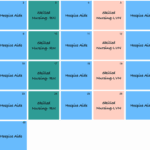
As a hospice nurse, determining the appropriate frequency of scheduled nurse visits for your patients is essential to providing effective and compassionate end-of-life care. Patients and their families often rely on your expertise to ensure comfort and well-being during this sensitive time. In this article, we'll discuss suggested starting scheduled nurse visit frequencies, when to decrease or increase frequencies, and factors to consider based on patient acuity and changes in their condition.
Understanding and Caring for Your Loved One with Prostate Cancer
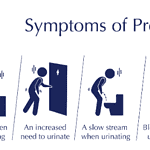
Navigating the path of prostate cancer can be challenging for both patients and their families. As a hospice registered nurse case manager specializing in end-of-life care, I offer you crucial information, guidance, and unwavering support. In this article, we will delve into the journey of prostate cancer, equipping you with insights about what to anticipate, how to identify changes in your loved one's condition and the optimal approaches to caregiving from diagnosis to end-of-life. Throughout this article, I aim to present information clearly and empathetically that resonates with your needs and comprehension.
Optimizing Hospice Respite Care: A Comprehensive Guide for Families
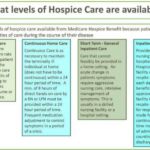
Caring for a loved one who has a terminal illness can be extremely rewarding but also particularly challenging. You may feel exhausted, overwhelmed, or isolated by the demands of caregiving. You may also feel guilty or anxious about taking a break from your loved one. But you deserve time to rest, recharge, and care for yourself. That is why hospice respite care can be a great option for you and your loved one.
Hospice respite care is a service that allows you to temporarily place your loved one in a facility, such as a hospital, nursing home, or hospice house, where they can receive professional care and support. You can use this time to do whatever you need or want, such as sleeping, working, running errands, visiting friends, or enjoying a hobby. Respite care can last up to five days at a time.
Understanding and Caring for Your Loved One with Lung Cancer
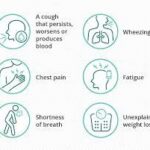
Lung cancer presents a difficult path for both individuals facing illness and their loved ones. As a dedicated hospice registered nurse case manager specializing in end-of-life care, my purpose is to equip you with essential insights. This guide aims to enlighten you about the stages of the disease, detecting crucial shifts in your dear one's condition, and delivering optimal care from inception to closure. By sharing this knowledge, my intention is to empower you to provide tender and considerate assistance throughout this profound journey.
Nourishing with Care: Feeding a Terminally Ill Loved One

Discover compassionate approaches to nourishing terminally ill loved ones. Learn about appetite changes, feeding techniques, and the importance of emotional support during meals. This guide offers practical tips for caregivers to ensure comfort and dignity while addressing nutritional needs in end-of-life care.
Managing Diabetic Ketoacidosis and Hyperosmolar Hyperglycemic State at End of Life: A Comfort-Based Approach
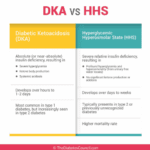
As an experienced hospice nurse, I understand that managing diabetic ketoacidosis (DKA) and hyperosmolar hyperglycemic state (HHS) at end of life can be challenging, especially when patients choose to stop taking their diabetic medications or when those medications are no longer an option. In this article, I will provide information on recognizing the signs and symptoms of hyperglycemic crises and outline comfort-based treatment options that align with hospice goals of care.
Traveling While on Hospice: Making the Most of Precious Moments Together

Discover how hospice patients can safely travel and create lasting memories with loved ones. Learn about essential preparations, medical considerations, and tips for a smooth journey. Explore ways to make the most of precious moments together while ensuring comfort and care during travel.
Caring for a Loved One with Dementia: Encouraging Medication Compliance

Caring for a loved one with dementia can be challenging. One common struggle caregivers face is ensuring their loved one takes their medications. Dementia can make understanding and remembering medications difficult. In this guide, we'll explore effective strategies for encouraging your loved ones with dementia to take their medications, considering their unique needs.
Navigating Hospice Care in 2024: A Comprehensive Overview
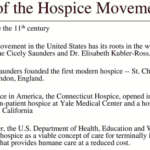
Discover the future of hospice care in 2024. This comprehensive guide explores cutting-edge pain management techniques, telemedicine integration, personalized care plans, and enhanced caregiver support. Learn how hospice services evolve to provide more compassionate and effective end-of-life care for patients and their families.
Understanding Nutrition Changes in Hospice: Nourishing Comfort and Peaceful End-of-Life Journey
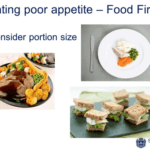
Explore the natural shift in nutritional needs during hospice care. This guide offers insights into managing reduced calorie intake, ensuring comfort and dignity in the end-of-life journey.
Understanding Terminal Illness: How to Recognize the Signs Using Your Senses
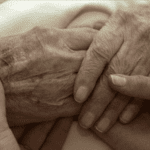
Facing the reality of a loved one's terminal illness can be a challenging and emotional journey. As a hospice registered nurse case manager, I understand the importance of providing compassionate and clear information to empower patients, caregivers, and families. In this article, we'll explore how you, as a family member, can use your own observations and senses to recognize the signs that your loved one may be in the terminal stage of their illness. Remember, while medical professionals have their tools, your observations and intuition significantly matter.
Understanding Stomach Cancer: A Guide for Families
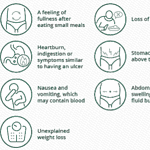
Coping with a loved one's stomach cancer diagnosis can feel overwhelming. As a hospice registered nurse case manager, I am here to provide you with vital information to navigate this journey. This guide is designed to equip you with knowledge, allowing you to care for your loved one with empathy and compassion, prioritizing their comfort and overall well-being.
Unveiling the Truth: The Accuracy of FDG PET Scans in Dementia Diagnosis
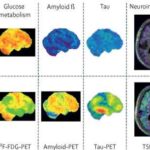
One of the tools doctors uses is called an FDG PET scan. It’s a special kind of test that takes pictures of the brain. FDG is a type of sugar, and PET stands for Positron Emission Tomography. When someone has a PET scan, they get a tiny amount of this sugar injected into their body. Because the brain uses sugar as fuel, the scan can show which parts are working well and which parts aren’t.
This is super helpful because in people with dementia, some parts of the brain don’t use sugar the same way healthy parts do. So, the scan can show doctors these changes and help them understand what’s going on.
Understanding and Managing Contractures

I know that the journey you and your loved one are on can be challenging, especially when facing a terminal illness. As an experienced hospice nurse caring for terminally ill patients, I want to provide you with some valuable insights on a common issue that may arise during this time: contractures.
